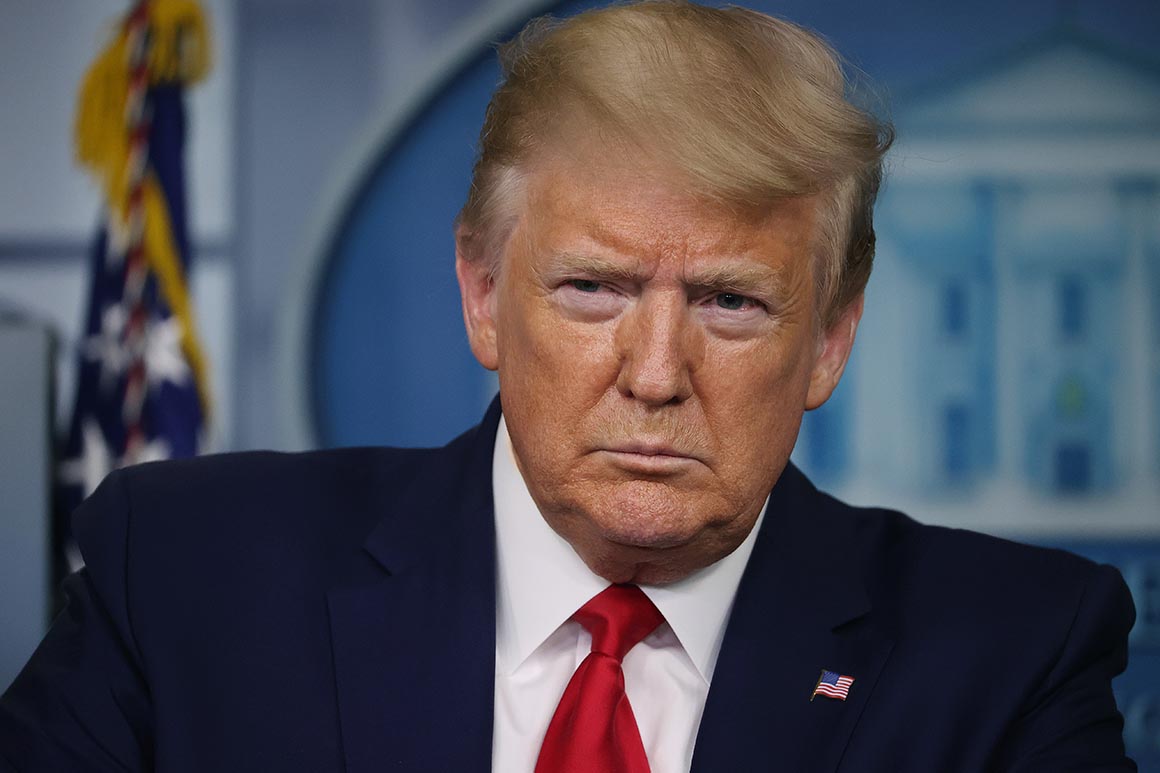
The divide highlights widening tensions in the Trump administration between protecting the American public against the spread of the coronavirus and reopening the economy as soon as possible. The president and many of his economic, policy and political advisers within the White House are trying to overrule scientific experts who increasingly worry that touting the drugs could harm Americans and cost valuable time to research other treatments. Interviews with more than a dozen officials for this story highlighted tensions within the administration that are occupying increasing amounts of time among health officials and drawing attention away from other critical issues.
Many health experts have worried about creating shortages for proven uses of the drug for patients with other conditions. And some have issued explicit warnings against widespread use of the drug. “I would not prescribe it,” Patrice Harris, president of the American Medical Association, told CNN on Sunday. “You could lose your life. It’s unproven.”
Trump’s focus on the drugs — driven by his faith in scant evidence that they work to speed recovery from Covid-19 — has increasingly warped his administration’s response. Health officials have been told to prioritize the anti-malaria drugs over other projects that scientists believe have more potential to fight the outbreak.
The rush to focus on unproven drugs also comes after months of lost opportunities to contain the spread of the outbreak. “There’d be less focus on [hydroxychloroquine] now if we had planned better then,” said one official, who added that the drug is seen by some career scientists as a “Hail Mary” effort to find a Covid-19 cure.
Trump is as enthusiastic about the drug in private as he is in public, said one senior administration official. He talks about the drug so often, another official added, because he views it as a potential therapy for the coronavirus when people have no other options.
“He thinks that it’s the drug that’s going to get everyone back to work. Do you have a supply?” joked one Republican close to the White House.
At one point, Trump heard there was some promise in its performance and he seized on it, said another White House official.
That approach has been amplified by officials such as trade adviser Peter Navarro, one of the economic aides Trump trusts. “You’ve got Dr. Navarro and he’s pretty much facing off against the medical expertise of the administration … who say let’s take our time, let’s be cautious and let’s do more trials and let’s do more tests,” said a person familiar with the deliberations of the coronavirus task force. “He’s not a lonely voice in the wilderness but he’s the loudest voice in the wilderness.”
The administration is already taking major steps to make the drug more available, said one senior administration official — signaling the debate is more settled internally than outsiders may realize.
The Trump administration has worked with pharmaceutical companies to locate tens of millions of doses of hydroxychloroquine and chloroquine, issuing emergency-use authorizations last week that would allow Americans to use the drugs and beginning to now deploy the treatment to retail pharmacies.
On Saturday, the coronavirus task force voted to send a surge of hydroxychloroquine to hospitals and pharmacies in the hot zones of the virus in the coming weeks — with the caveat that it can be prescribed only by physicians for their patients.
Trump discussed other potential treatments in a similarly hopeful manner during Monday night’s briefing at the White House, when he acknowledged that a vaccine was still a ways off but that U.S. pharmaceutical companies were working hard on therapeutics. The president held a call earlier Monday with top executives from Amgen, Genentech, Gilead and Regeneron.
“The vaccines are going to be always a little bit later because of the testing period,” Trump said Monday. “But therapeutics, getting the kind of things that I heard about today, talking to these brilliant companies and brilliant people on the phone, it was fantastic. It was such an incredible conversation.”
Officials generally describe three camps inside the administration on the hydroxychloroquine debate: One group of Trump devotees, like Navarro and other policy advisers and outside allies, who fully support the president’s belief that the drugs represent a viable path to rapidly controlling the outbreak.
“In peacetime, the traditional model of ‘wait until all of the clinical trials are done and there is full FDA approval’ may well be the appropriate position, but when you are in the fog of war and you are facing mass casualties, you need to think about leaning more forward and assuming additional risk,” said Navarro, assistant to the president for trade and manufacturing and the Defense Production Act policy coordinator.
“The reality is, this is a drug that has been around for a long time, and there is one point of view — and it appears to have considerable support within the medical and scientific community — that hydroxychloroquine may have both therapeutic and prophylactic efficacy,” he said.
Meanwhile, officials in a second group, such as Surgeon General Jerome Adams and Food and Drug Administration Commissioner Stephen Hahn, are willing to entertain the possibility that the drugs work — given the lack of other existing treatments — but stress that the decision should be made between a doctor and a patient.
Source: politico.com
See more here: news365.stream






